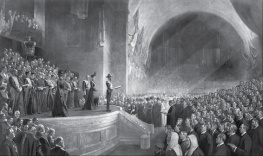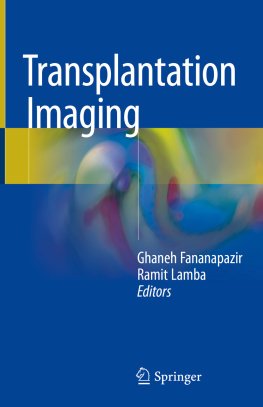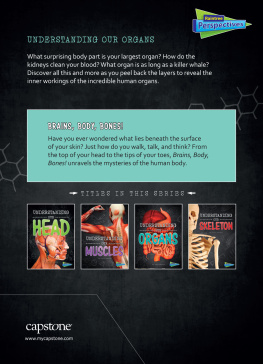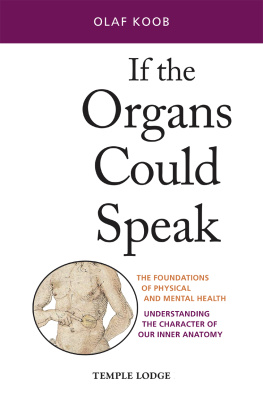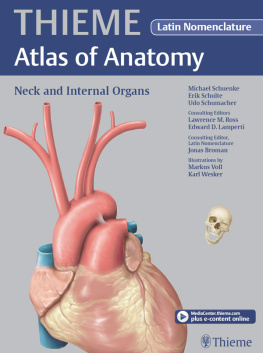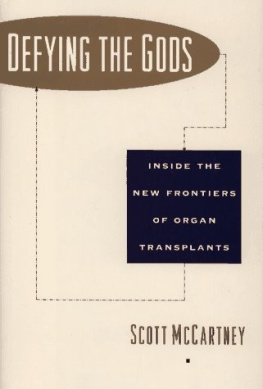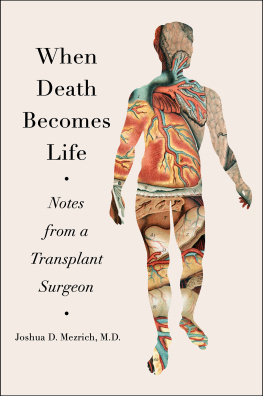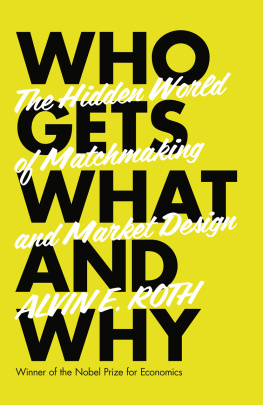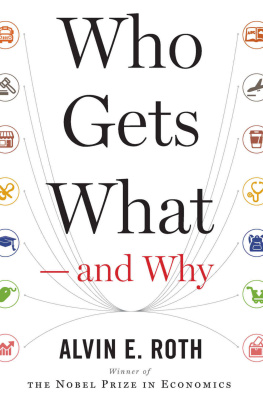Marie-Andrée Jacob - Matching Organs with Donors: Legality and Kinship in Transplants
Here you can read online Marie-Andrée Jacob - Matching Organs with Donors: Legality and Kinship in Transplants full text of the book (entire story) in english for free. Download pdf and epub, get meaning, cover and reviews about this ebook. City: Philadelphia, year: 2012, publisher: University of Pennsylvania Press, genre: Politics. Description of the work, (preface) as well as reviews are available. Best literature library LitArk.com created for fans of good reading and offers a wide selection of genres:
Romance novel
Science fiction
Adventure
Detective
Science
History
Home and family
Prose
Art
Politics
Computer
Non-fiction
Religion
Business
Children
Humor
Choose a favorite category and find really read worthwhile books. Enjoy immersion in the world of imagination, feel the emotions of the characters or learn something new for yourself, make an fascinating discovery.

- Book:Matching Organs with Donors: Legality and Kinship in Transplants
- Author:
- Publisher:University of Pennsylvania Press
- Genre:
- Year:2012
- City:Philadelphia
- Rating:3 / 5
- Favourites:Add to favourites
- Your mark:
Matching Organs with Donors: Legality and Kinship in Transplants: summary, description and annotation
We offer to read an annotation, description, summary or preface (depends on what the author of the book "Matching Organs with Donors: Legality and Kinship in Transplants" wrote himself). If you haven't found the necessary information about the book — write in the comments, we will try to find it.
While the traffic in human organs stirs outrage and condemnation, donations of such material are perceived as highly ethical. In reality, the line between illicit trafficking and admirable donation is not so sharply drawn. Those entangled in the legal, social, and commercial dimensions of transplanting organs must reconcile motives, bureaucracy, and medical desperation. Matching Organs with Donors: Legality and Kinship in Transplants examines the tensions between law and practice in the world of organ transplantsand the inventive routes patients may take around the law while going through legal processes.
In this sensitive ethnography, Marie-Andre Jacob reveals the methods and mindsets of doctors, administrators, gray-sector workers, patients, donors, and sellers in Israels living kidney transplant bureaus. Matching Organs with Donors describes how suitable matches are identified between donor and recipient using terms borrowed from definitions of kinship. Jacob presents a subtle portrait of the shifting relationships between organ donors/sellers, patients, their brokers, and hospital officials who often accept questionably obtained organs.
Jacobs incisive look at the cultural landscapes of transplantation in Israel has wider implications. Matching Organs with Donors deepens our understanding of the law and management of informed consent, decision-making among hospital professionals, and the shadowy borders between altruism and commerce.
Marie-Andrée Jacob: author's other books
Who wrote Matching Organs with Donors: Legality and Kinship in Transplants? Find out the surname, the name of the author of the book and a list of all author's works by series.

